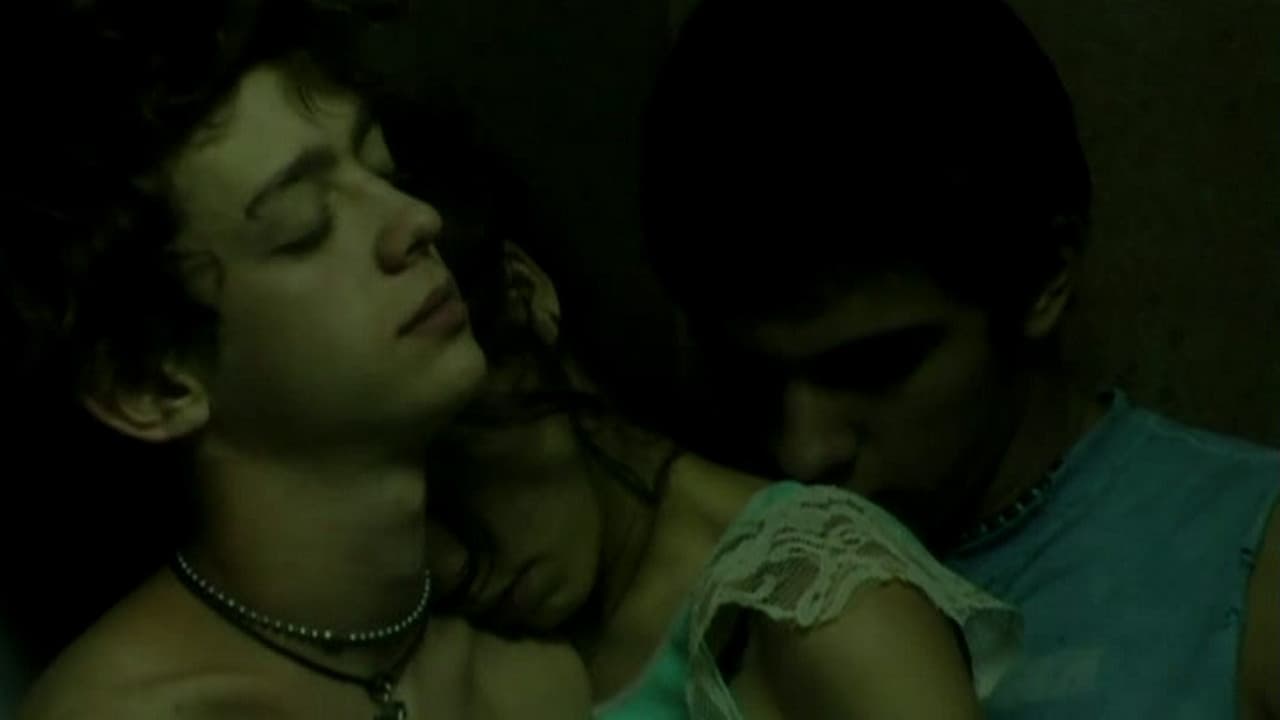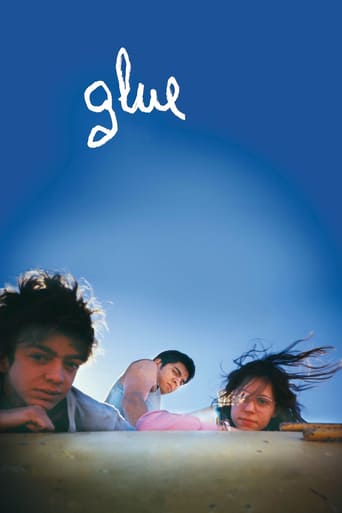ChanFamous
I wanted to like it more than I actually did... But much of the humor totally escaped me and I walked out only mildly impressed.
Gurlyndrobb
While it doesn't offer any answers, it both thrills and makes you think.
Teddie Blake
The movie turns out to be a little better than the average. Starting from a romantic formula often seen in the cinema, it ends in the most predictable (and somewhat bland) way.
Zlatica
One of the worst ways to make a cult movie is to set out to make a cult movie.
hddu10
Although not specifically stated, the film is set in Neuquen, Argentina's "outback" in what is most likely the 1980s (judging from the music) or possibly the 90s. So, no cell-phones, web-cams or any of the modern amenities one would have expected of kids today. Instead, we see a very raw, realistic look at bored, awkward kids in what appear to be their early teens. I have to be honest that I will watch almost any story about Argentina. However, given the tendency towards shock-value in most modern films, I wasn't surprised by the constant, unfortunate references to masturbation (yes...we get it...teens do that. But why the constant need to emphasize it? Nothing new there). For me, the redeeming side was the interaction between the three protagonists...that is, when they weren't groping each other. In fact, I was honestly put off by the blatant exploitation of the female protagonist's body, and had to check to see how old she was at the time it was made (apparently 20, but still...I found it unsettling as they made her look WAY too young). I can say this film kept my interest, but then again, as I said previously, I'll watch almost anything that comes from Argentina.
KobusAdAstra
We get a realistic view of the turmoil three teenagers experience as they become young adults. Lucas's adulterous father got kicked out of their house in a small town in rural Patagonia, and forced to move to the city after one too many sexual escapades with the "fat cow", as Lucas's mother called the loose woman during a physical altercation. Lucas writes songs for the band in which he is a vocalist, and can rarely be seen without a walkman and earphones. His buddy Nacho is also in the band. Both 16-year-olds are randy as can get and dream of having a go at girls, or so they pretend. Andrea, a bespectacled chick in their neighbourhood, also has secret romantic fantasies. The two lads are rebellious and test the boundaries. One weekend they travel to the city, and have a gigglingly good time sniffing glue. It is suggested that while high they furtively grope each other. Back in their hometown the two young men have a successful performance of one of their songs, and in the post-performance euphoria they get drunk, and involve a tipsy Andrea in mutual hugging. In a well-executed scene we are presented with ambiguous footage, where the boundaries between choices of sexual partners become diffuse, without bothering any of the partners. The three are growing up and finding out who they really are.The strongest point of this film is the cinematography. The cinematographers largely made use of hand-held camera techniques - and take note I am generally not a great fan of hand-held footage, except perhaps during running and chase sequences. In this case it works extremely well. Parts of the film is taken with a filter giving it a 1960s colour and feel. The same applies to some footage which just as well could have been taken with a 8mm movie camera from the same period. A few scenes were taken at slow speed, e.g. those of the party with semi-intoxicated dancers, giving it a dreamlike feeling.Furthermore, excellent acting by the protagonists and a great soundtrack made watching this Coming-of-Age film an exhilarating experience. 7.5/10.
swekarl
I really didn't want to dis this movie, because the acting/directing was great and the movie does succeed in capturing the teenage vibe, despite the male actors look a little older than 16 to me (still very cute though).What makes me rate it a 4 is the total absence of a script. There is no depth of characters, no character development, no conflict. I don't mind experimental storytelling as long as I'm engaged and care for the characters. You don't in this movie and I found myself thinking like scandojazzbuff - wake me up when it's over.The Gus Van Sant style rather annoyed than impressed me - that's how all alternative coming of age movies look like.It seems to me many film makers want to both write and direct their movies. If you're not Woody Allen and can pull it off, maybe it would be a good idea to use that old thing called a scriptwriter.
rockdacasbah
I just saw this at the Toronto International Film Festival, and although I had high hopes, I didn't love it. The concept is good and should have worked - i.e. the frenetic and disjointed experience of teenage realities in remote Argentina being translated cinematically by alternating concentration on both the mundane and the exciting, using a lot of guerrilla hand-held camera work, solarized post-production, random cuts and stop-motion editing of the film. But the end product appears weak... at one point my friend said "I don't think I can stand another abstract, hand-held, blurry, close-up - its making me dizzy." The pacing of the film is really slow too. But I agree with some of the above comments - there are moments that are very sweet/naive - a total immersion into the teenage experience.

